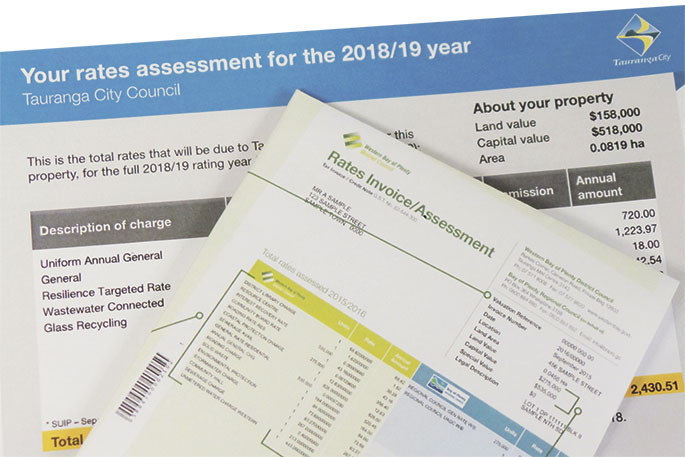A national ratepayers' report has found the Western Bay of Plenty District Council's rates to be the highest in New Zealand, with an average residential rates bill of $3192.
Tauranga City Council also came in with the highest residential rates for metropolitan councils, with an average rates bill of $2553.
The Taxpayers' Union report did find, however, that with personnel costs of only $1071 per ratepayer, financing costs of $352 per ratepayer and operating expenses per ratepayer of $4081, that TCC was generally managing its finances 'prudently” and 'ensuring there is a healthy balance sheet for tomorrow”.
The praise for TCC did not extend to WBOPDC, with Taxpayers' Union executive director Jordan Williams saying Western Bay ratepayers should be seriously questioning the value for money their council provides.
'Their council charges the highest average residential rates in the country, has high debt on a per ratepayer basis – leading to the second-highest financing costs of any provincial council – and pays a higher proportion of its staff salaries in excess of $100,000 than any other council in the region,” says Jordan.
'Despite the council's poor performance, it is one of the few in New Zealand lacking an Audit and Risk Committee. The council should move to remedy this immediately. Oversight is fundamental to good governance and protecting ratepayers.”
The Western Bay of Plenty District Council responded to the Taxpayers' Union by saying the information has its place, but does not compare apples with apples.
'It's a snapshot of where individual councils are on their funding, investment and levels of service journeys,” says a spokesperson.
'The information does not adequately reflect the complexities many councils face providing services to communities – particularly high-growth, semi-rural councils such as the Western Bay of Plenty District.
'While Western Bay is at the high end of the rates table, the council made some tough decisions several years ago to significantly invest in core infrastructure, particularly water supplies and wastewater treatment and disposal, and to spread the cost of this investment over several generations who will benefit from it.”

